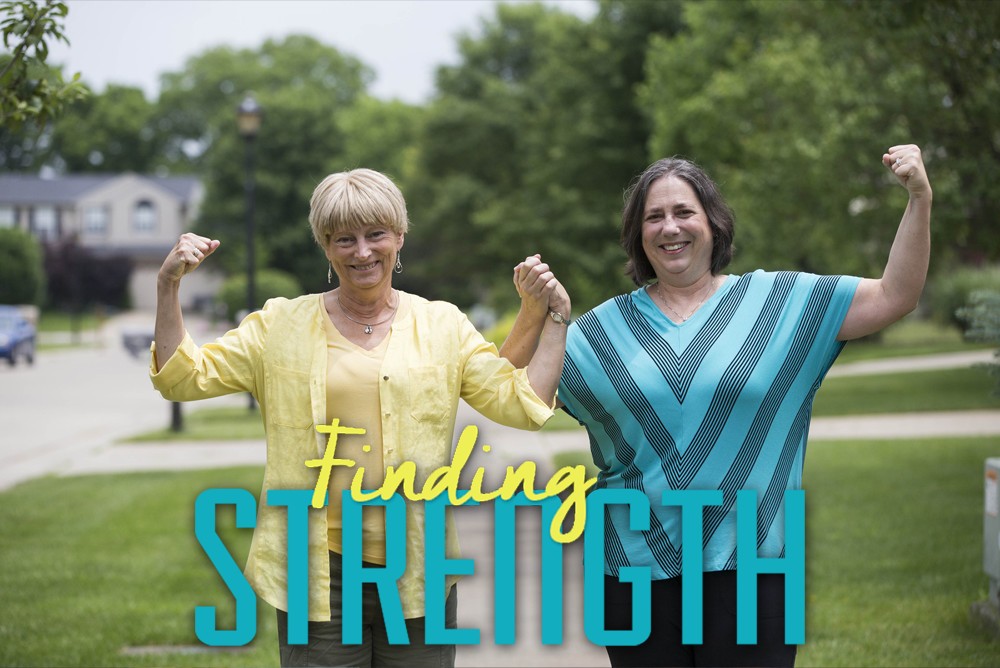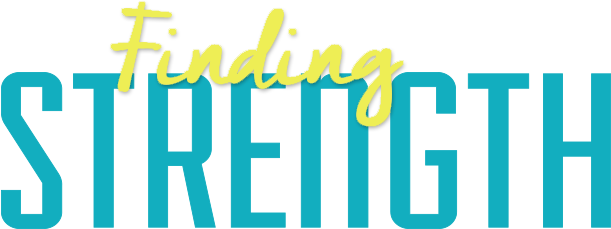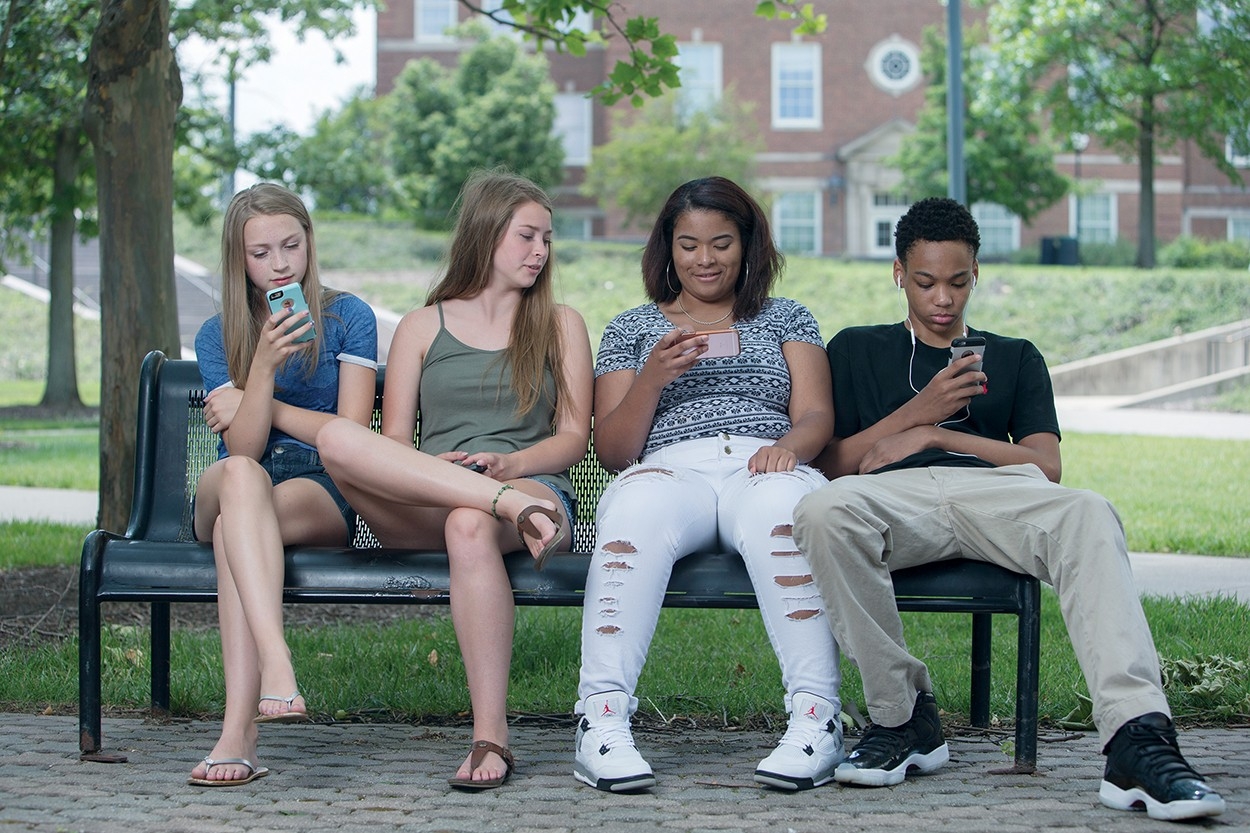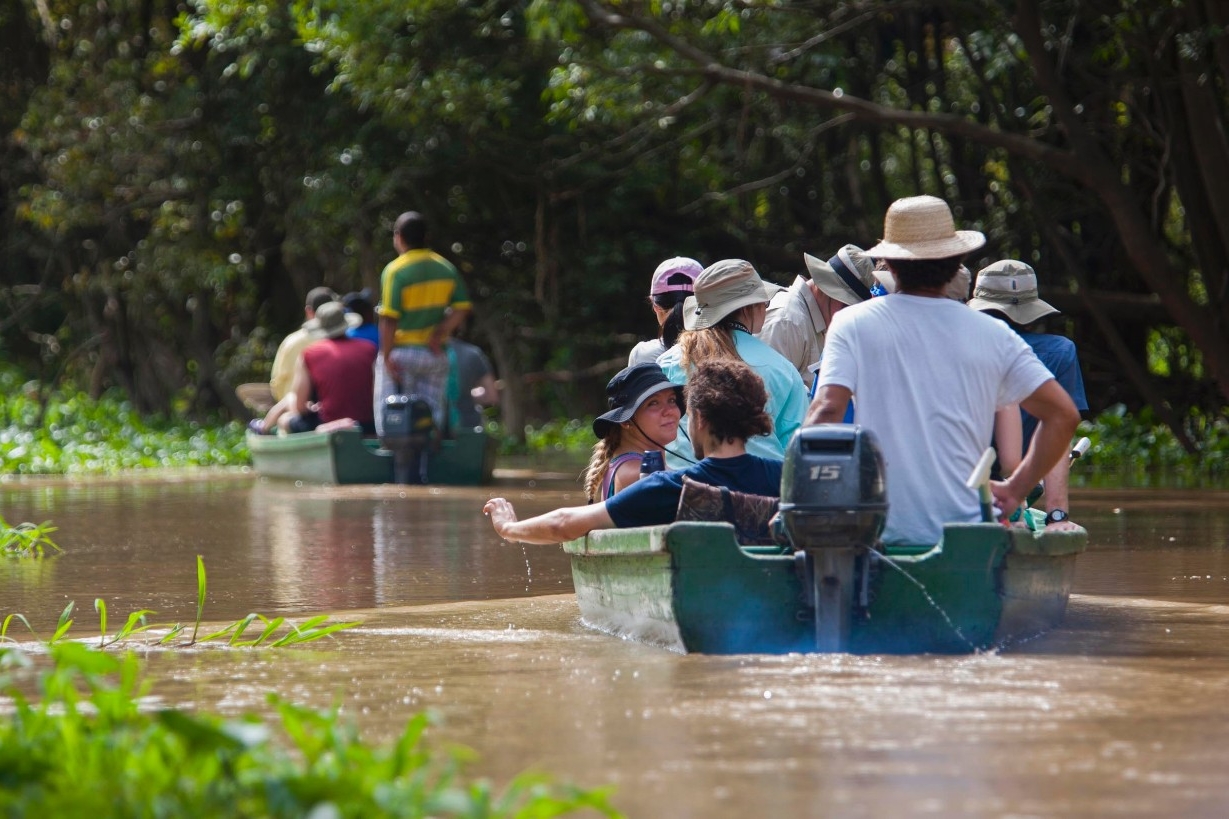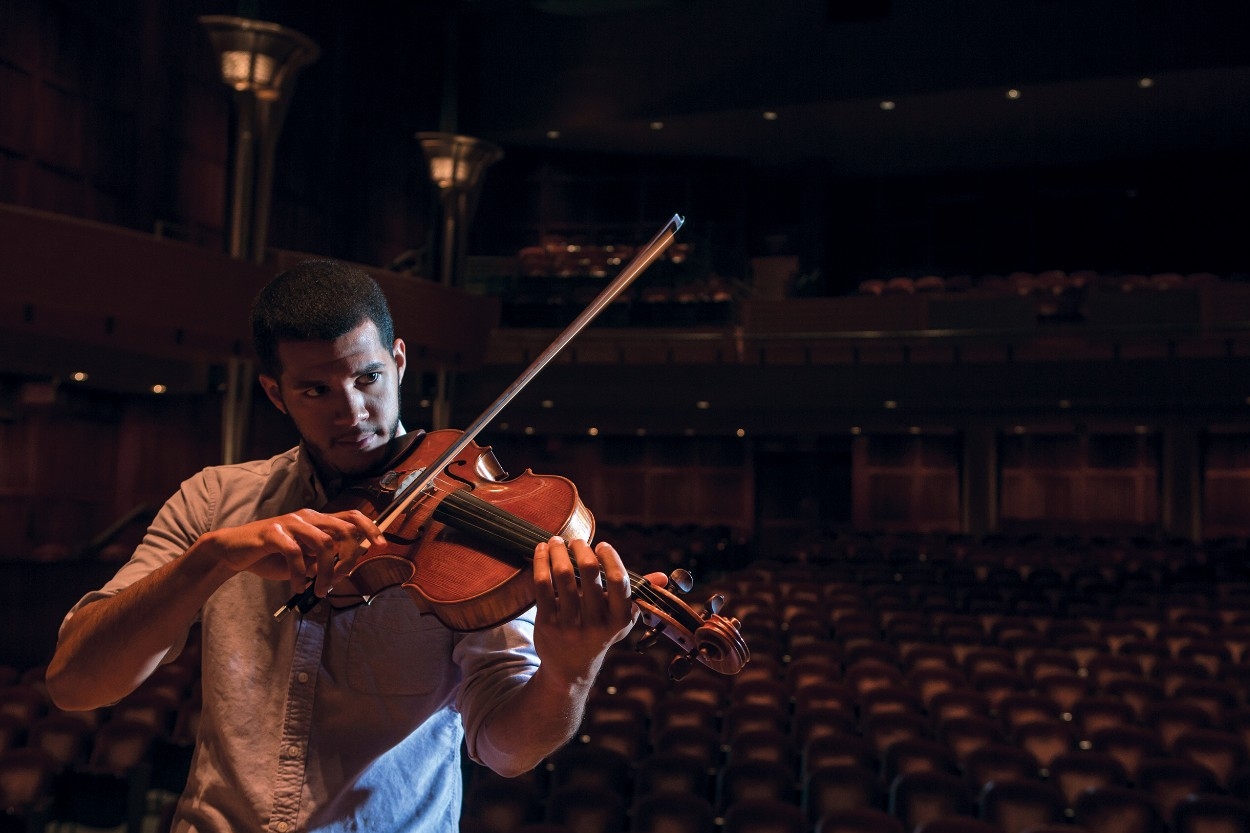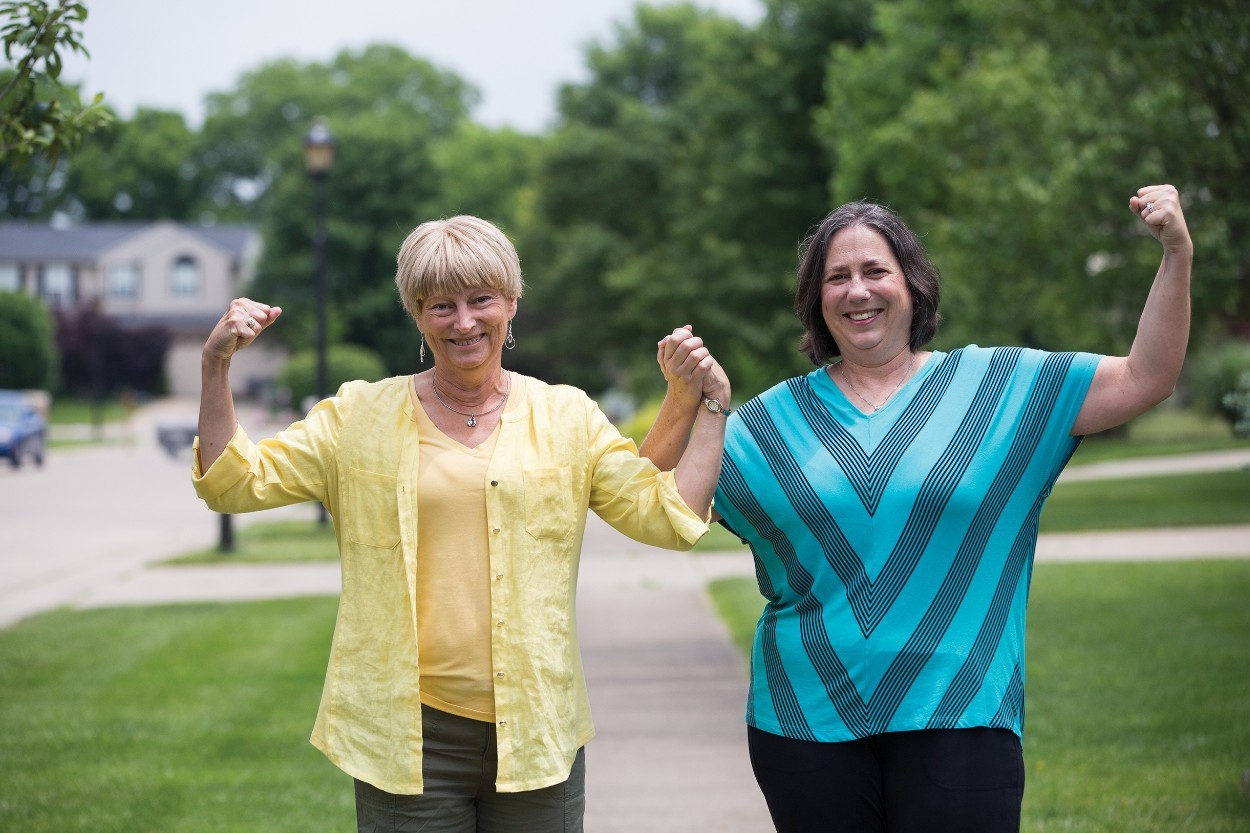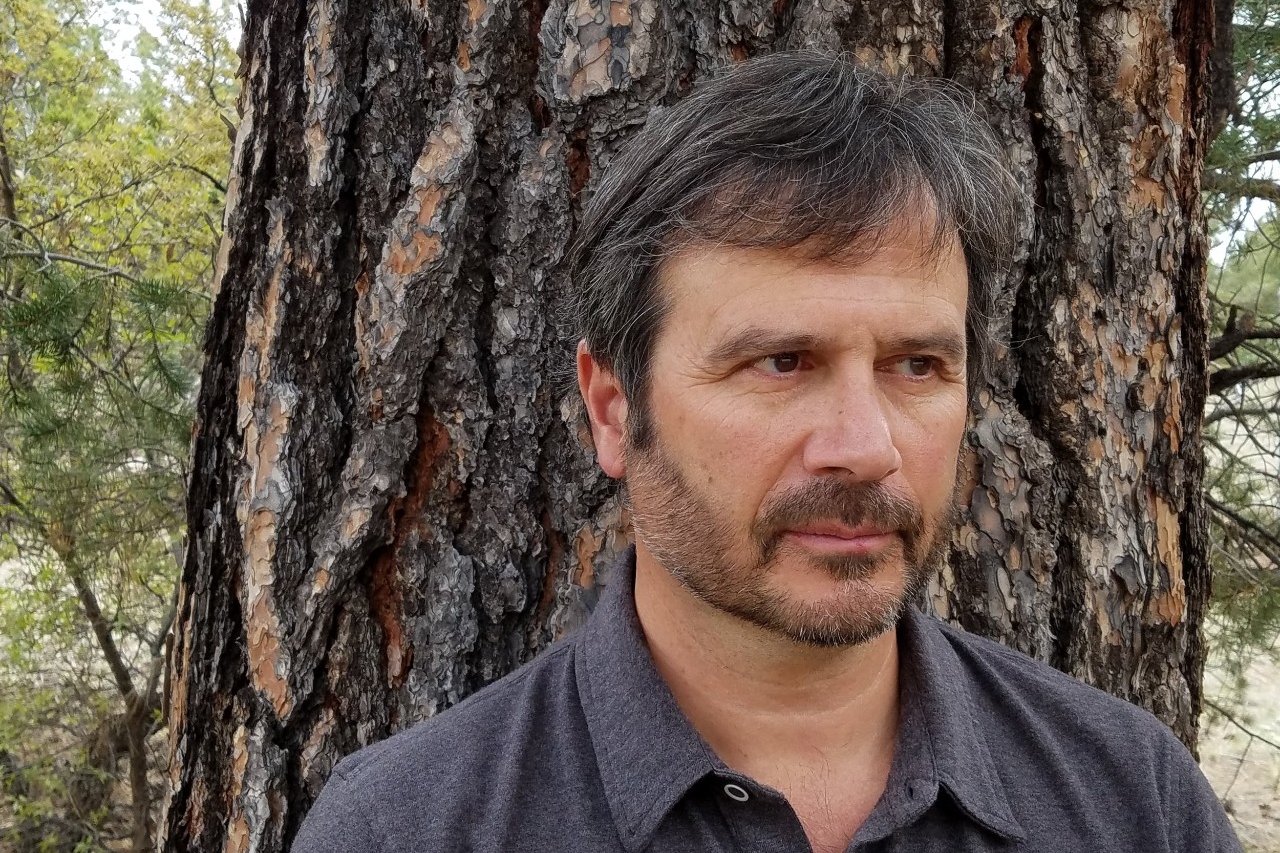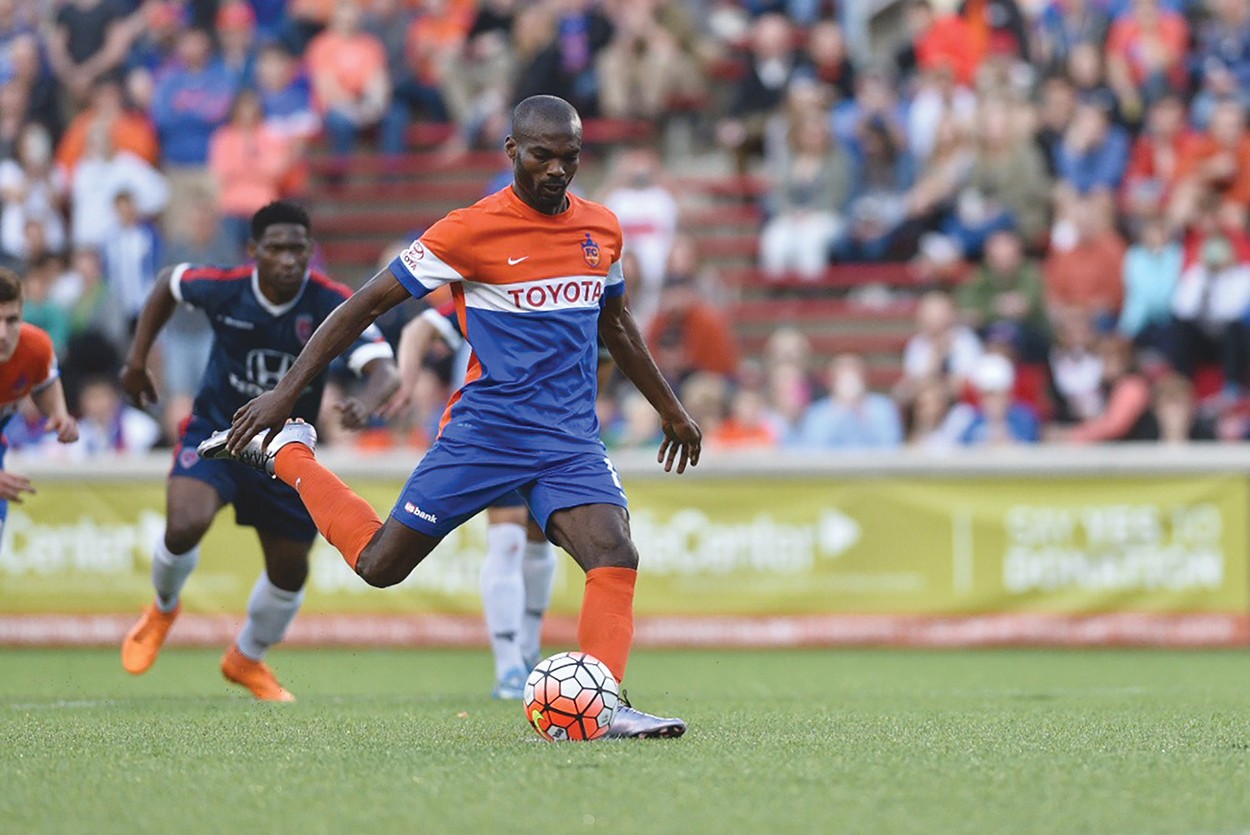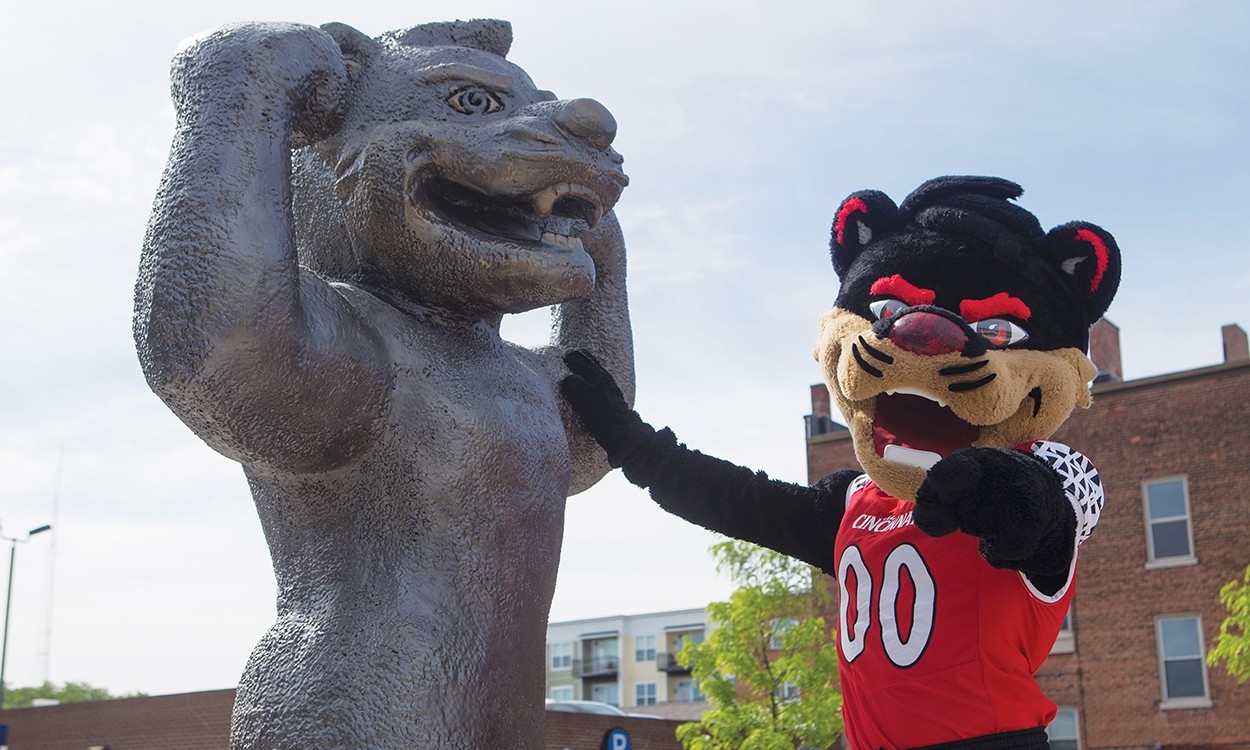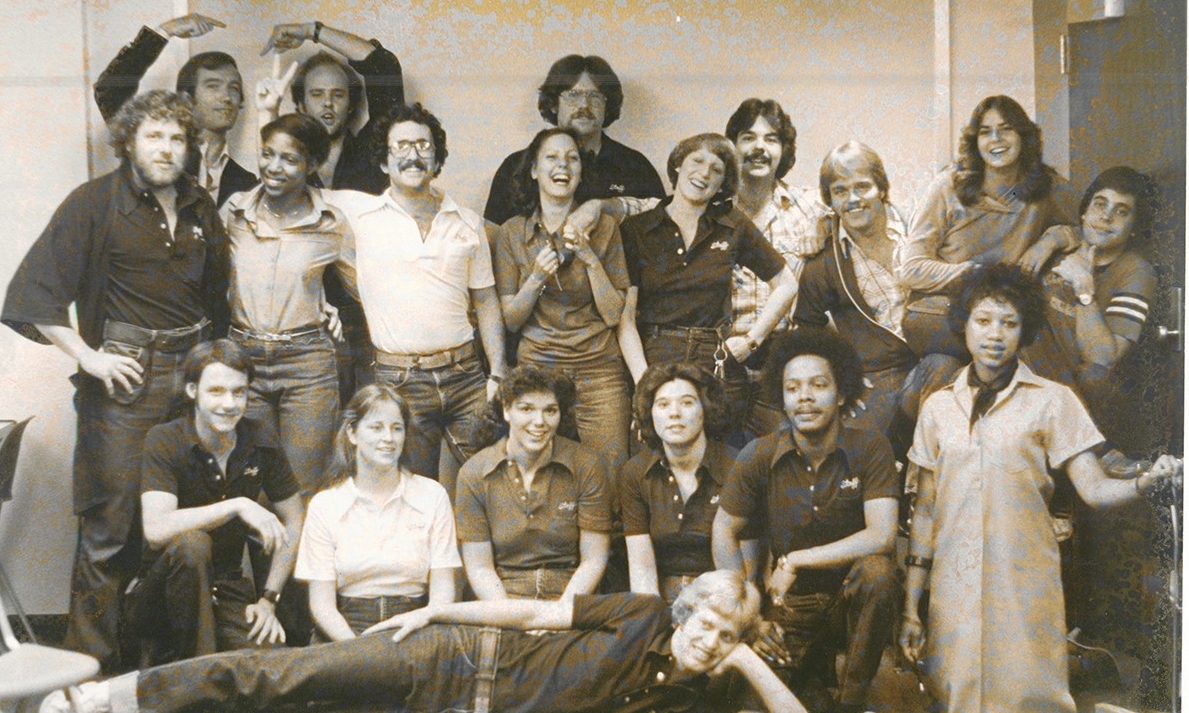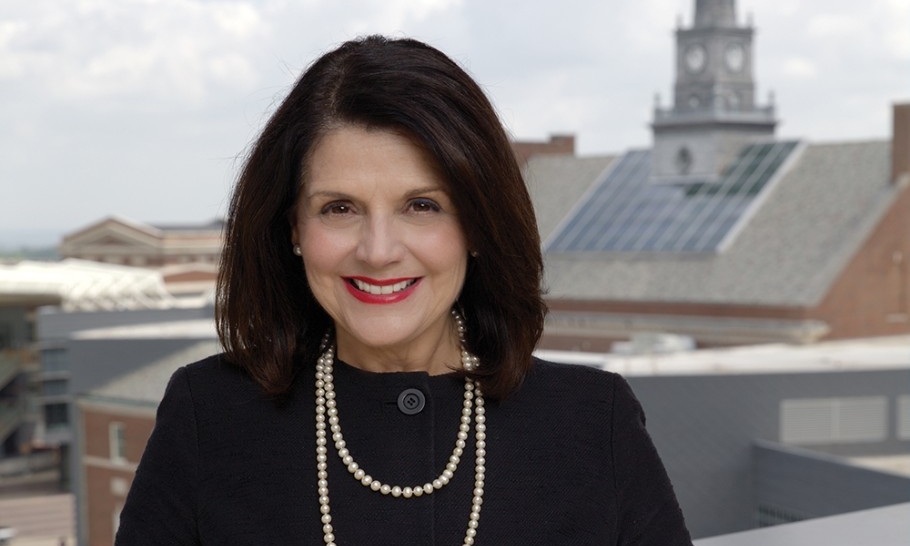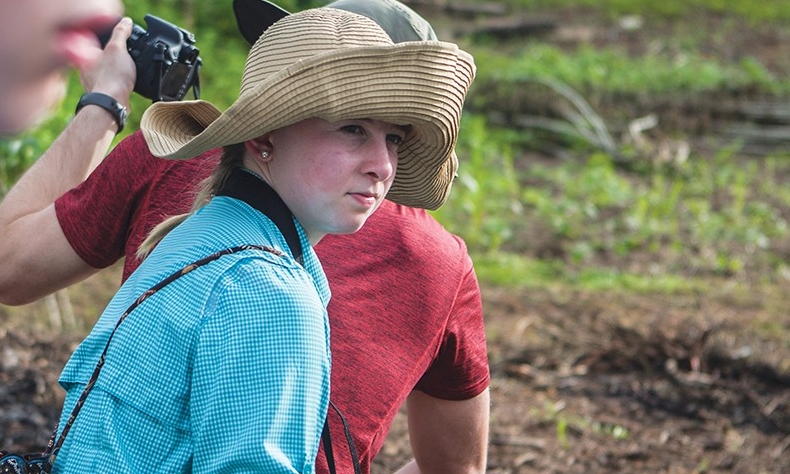UC graduate Beth Sininger Flege (left) stands outside her West Chester home with best friend Susan Kromer Hunt more than five years after her diagnosis with inoperable pancreatic cancer.
One UC grad's battle with cancer pulled family, friends and the UC medical community into the fight for her life.
by Katie Pence
Photos by Lisa Ventre
She thought it was a death sentence.
When Beth Sininger Flege learned that she had inoperable pancreatic cancer in December 2010, she assumed the worst.
After all, outcomes for this type of disease are historically dire. Statistics show that pancreatic cancer is the third-leading cause of cancer-related deaths in the United States. According to the American Cancer Society, pancreatic cancer — expected to claim 40,000 lives in 2016 alone — has the highest mortality rate of all major cancers. Three out of four people normally die within a year of diagnosis, and 94 percent never make it past five years.
But it wasn’t a death sentence for Flege, now 57. A year after her diagnosis, she was having surgery to confirm remission, and she has now become the inspiration for local fundraising organizations that are impacting University of Cincinnati pancreatic cancer research.
Flege’s experience transcends her own situation, giving other patients optimism and even supporting the university in its quest for National Cancer Institute designation, the highest recognition for an academic cancer center.
For Flege, A&S ’80, it all started with stomach pains that wouldn’t go away.
“I thought maybe I had a bad case of acid reflux,” she says, adding that her primary care physician, Dr. Sri Murthy, saw something else, leading to an ultrasound appointment and an urgent call following the imaging.
“Never in my wildest imagination did I think I had pancreatic cancer. I thought I was only 52 and was going to die. I didn’t want to leave my husband and family so soon.”
The very next day, Murthy referred Flege to Dr. Syed Ahmad, director of the division of surgical oncology at the UC College of Medicine. Surrounded by her supporters, including her mother, husband Tom, stepdaughter Chris and best friend Susan Kromer Hunt, Eng ’81, Flege saw Ahmad at the UC Health Barrett Cancer Center. He confirmed she had inoperable cancer.
Ahmad, also director of the Pancreatic Cancer Center within the UC Cancer Institute and a member of the Cincinnati Cancer Center, believed the best course of action was to begin chemotherapy immediately under the guidance of UC Cancer Institute oncologist and associate professor Dr. Olugbenga Olowokure.
He is a “force of nature, a spiritual guide, the best doctor anyone could have when fighting pancreatic cancer,” Flege says of Olowokure, affectionately referred to as “Dr. Benga” by his patients. “From the minute he met with us, he gave us hope and a path to follow. He told us he would do everything possible to make surgery an option but that I had to believe and keep a positive attitude and keep my ‘boxing gloves’ on all the time.”
Chemotherapy started the following week for Flege, and she received a regimen that involved three weeks of treatment and one week off for all of 2011. She credits a supportive staff whom she dubbed the “chemo gang” for helping her through it.
Importantly, Flege also began a round of 31 radiation treatments following her second round of chemo, something her physicians said may not help, but they were willing to try.
A Friday the 13th to remember
After a year of chemotherapy and radiation, Flege’s labs looked more normal with each visit, and Olowokure and Ahmad decided in January 2012 to send her to surgery for a closer look.
That’s a day Flege will never forget.
“I went into surgery at UC Medical Center not knowing what the final outcome would be. According to Dr. Ahmad, he did over a hundred biopsies of the organs and tissues surrounding the pancreas — so many, he said that the lab was getting quite annoyed with him.
“All of them came back negative for cancer cells. Friday the 13th turned out to be a very lucky day.”
As part of the procedure, Flege’s spleen and part of her pancreas were removed, but that hasn’t required an adjustment in diet or lifestyle.
She was cancer-free.
Unfortunately, a little over a year and a half later, a cancer was found in her lung — a relapse. With regular chemotherapy, however, the cancer (at the time of this article) hadn’t spread and is being monitored and treated like any chronic condition.
“I am treating every precious day as a blessing, and I’m continuing to work with … researchers at UC to find a cure,” Flege says. “I owe so much to my whole team. The people at UC saved my life, and I want others to know that this is the place you need to be for the cutting-edge treatments and the talented physicians.”
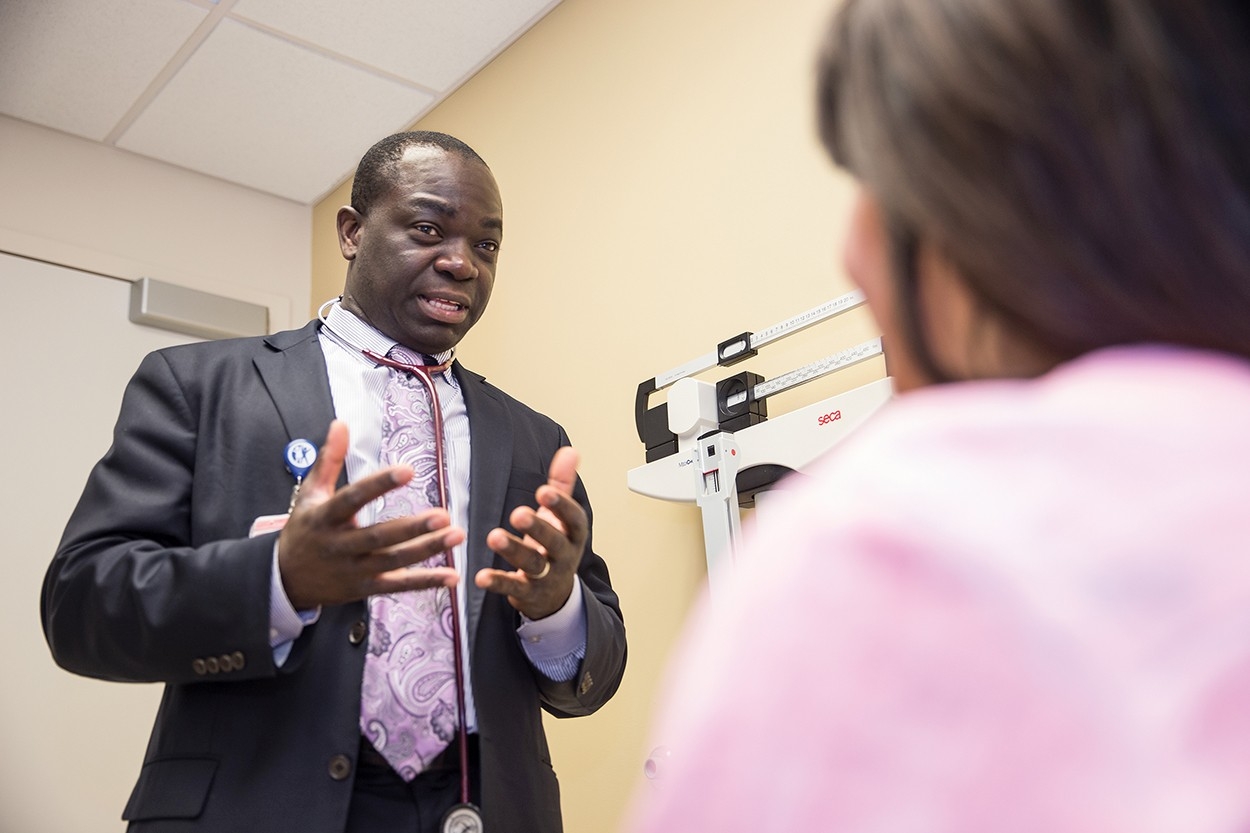
Dr. Olugbenga Olowokure insisted that Flege “keep her boxing gloves on” during chemotherapy and radiation treatments, efforts he led to help move her toward possible surgery.
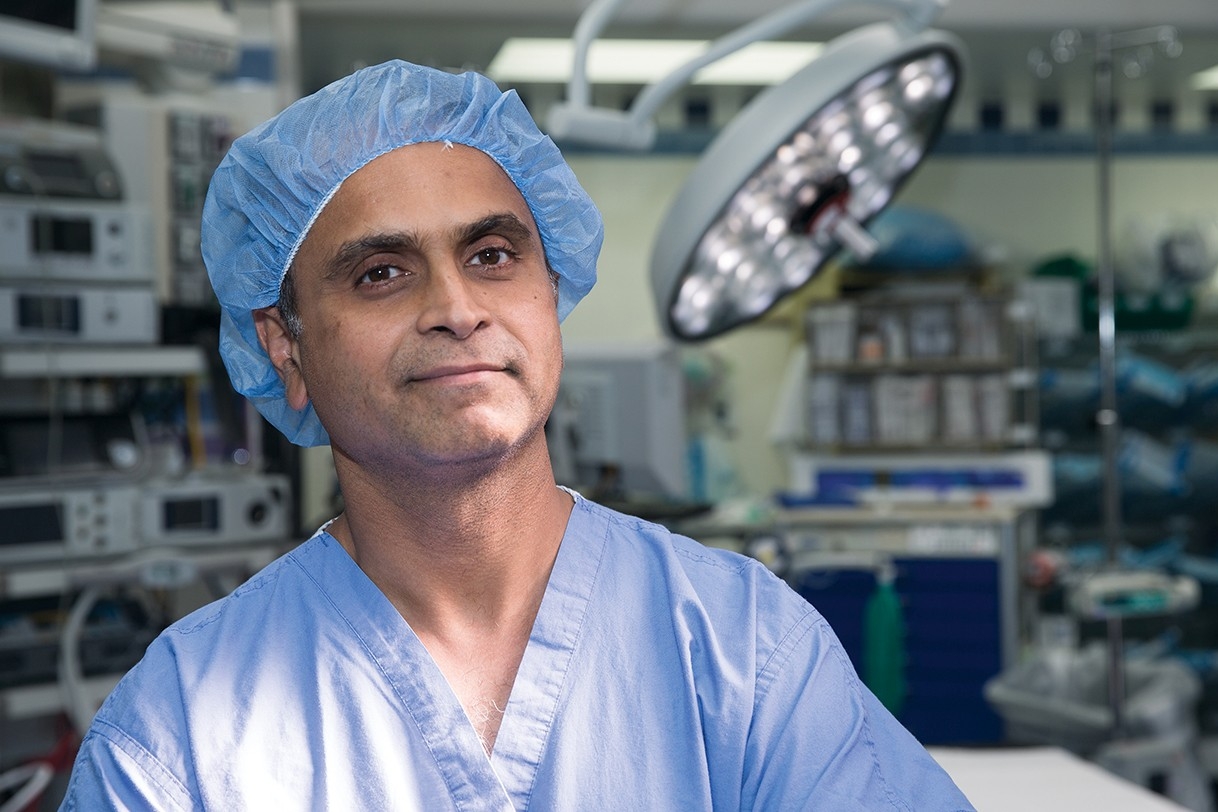
Despite having originally diagnosed her with inoperable cancer, Dr. Syed Ahmad performed surgery on Flege in January 2012 to remove her spleen and part of her pancreas.
Fighting for a friend
UC alumna Susan Kromer Hunt has been Beth Sininger Flege’s best friend since they first met as seniors at Walnut Hills High School in Cincinnati nearly four decades ago. So she was understandably devastated by Flege’s diagnosis with pancreatic cancer.
An engineer by trade, Hunt immediately began searching for a fix.
On the day following Flege’s appointment, in a “huge twist of fate,” Hunt came across an article authored by Dr. Syed Ahmad, director of the division of surgical oncology at the UC College of Medicine, in the local newspaper discussing the need for more awareness and research around pancreatic cancer.
“This was our ‘aha!’ moment,” Hunt says. “That was something we could do.”
She and Beth’s stepdaughter, Chris Flege Zimmer, immediately went to work and started a fund to support awareness and research for pancreatic cancer in the area. They began with a singular goal — to give pancreatic cancer patients and their families hope.
Thus the name GiveHope.
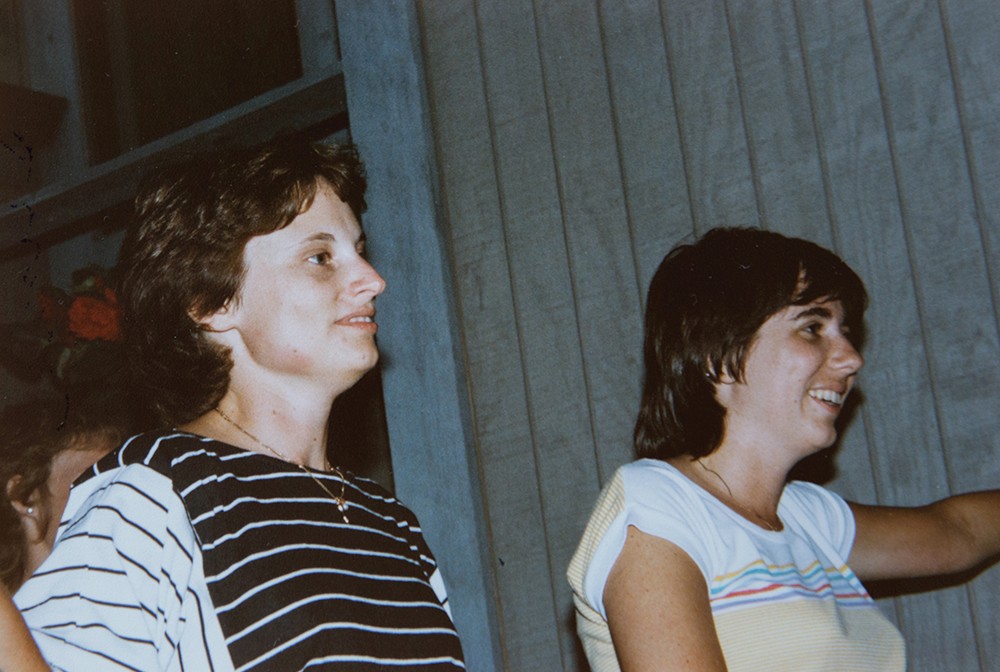
Beth Sininger Flege (left) and Susan Kromer Hunt have been close friends since high school. Hunt joined Flege’s family and other friends in establishing GiveHope to raise research funds to fight pancreatic cancer.
Founded and led by all UC graduates, GiveHope supports Southwest Ohio cancer patients and their families, as well as UC cancer researchers. The volunteer-run nonprofit and its corporate partner, BSI Engineering, have raised more than $215,000 for pancreatic cancer research, education, prevention and awareness programs, with a focus on Greater Cincinnati.
The organization has endowed more than $37,000 to support future research and awareness programs.
GiveHope works closely with the university to make sure that funding comes back to UC. They even work with the food vendors in UC’s Tangeman University Center who sell dollar GiveHope donation cards, which support researchers on the medical campus.
Today, Flege and Hunt are using GiveHope to continue to inform and fight for other patients.
Recent gifts from the nonprofit include $10,000 in 2015 to fund a UC study examining the protocol for patients with operable pancreatic cancer, giving them chemotherapy and targeted radiation before surgery with hopes of improving survival rates.
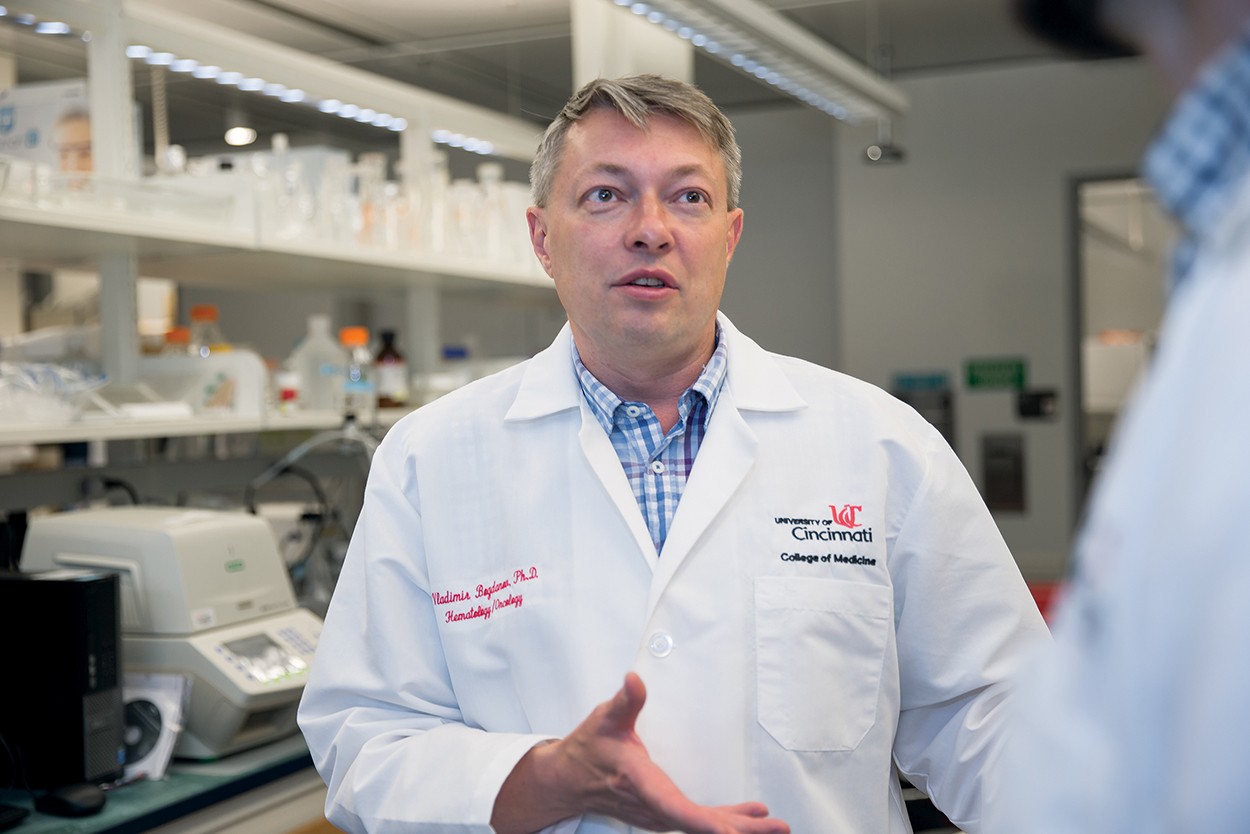
Funding from GiveHope helps support research at the University of Cincinnati, including that of Vladimir Bogdanov, above, from the division of hematology oncology at the UC College of Medicine.
Researcher Vladimir Bogdanov, associate professor and director of the hemostasis research program in the division of hematology oncology, UC College of Medicine, has also benefited from GiveHope’s mission.
Bogdanov, a member of the UC Cancer Institute and the UC Cancer Center, has been continually funded by GiveHope, which helped him obtain much larger, highly competitive grants from the National Cancer Institute.
Most recently, he was awarded $40,000 from the nonprofit to continue his research on use of a novel form of “Tissue Factor” as a diagnostic and possibly therapeutic target in pancreatic cancer.
“In 2012, GiveHope’s grants were instrumental for my lab in securing a larger, two-year exploratory grant from the National Cancer Institute, and last year, we received a five-year, $1.4 million grant from the NCI,” Bogdanov says. “When researchers are between grants, the work must continue somehow. These types of grants make it possible. They can even be our lifelines, sometimes.
“I am incredibly grateful to GiveHope and BSI because their grants help my lab continue its research to hopefully lead to the discovery of more effective diagnostic and therapeutic approaches for fighting pancreatic cancer.”
This is Flege’s and Hunt’s goal, too.
“We’re not giving up,” says Hunt. “There’s still lots to do, and we’re making strides — purple ones (the pancreatic cancer awareness color) — every day.”
UPDATE: Several months after this story was published, Beth Sininger Flege lost her battle with cancer. It is with heavy hearts that we report that she passed away in March of 2017.
What is NCI designation?
National Cancer Institute designation opens doors to expanded research funding, related economic benefits and jobs and brings the most advanced cancer care to patients. It drives growth across many segments of the regional economy.
The university is working hard to gain this distinction and is well on its way thanks to recent gifts from committed donors in the community, including the Barrett, Hayden, Schiff, Goldman and other families. Officials say these gifts will help recruit researchers and faculty members and accelerate the programs needed to apply for this designation in coming years.
Organizations like GiveHope help provide the seed funding that leads to larger federal grants and position the institution as a leader in research.
Katie Pence
Katie is the assistant director of public relations and communications at the University of Cincinnati Academic Health Center and a contributor to UC Magazine.
FEATURES
Make room for Gen Z
As UC's next generation makes its way onto campus, find out what makes them tick.
Finding strength
One UC grad's battle with cancer pulled family, friends and the UC medical community into the fight for her life.
Accidental activist
A simple hike led one UC law grad to spend two decades standing up for old-growth trees in the American West.

